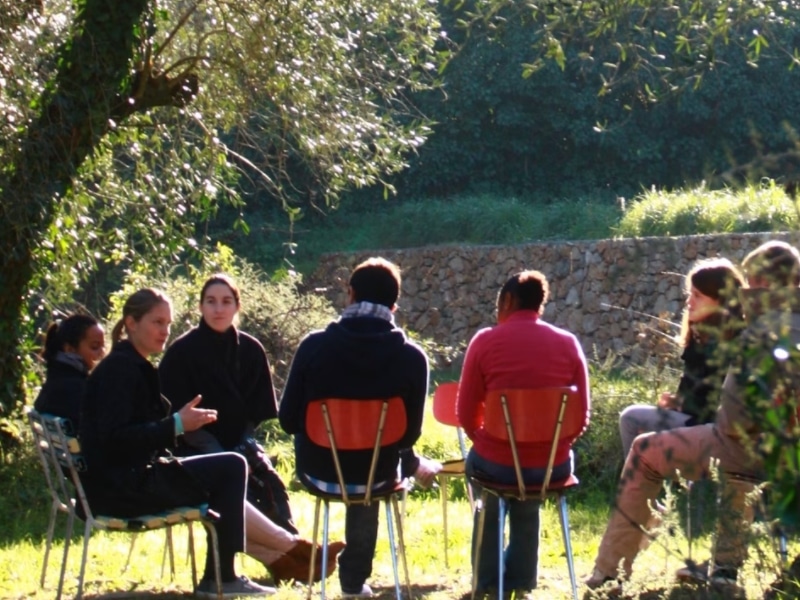Most people naturally want to experience the company of others. As humans, we are all predisposed to seek out and connect with others to thrive. It comes as no surprise then, that being social can really enhance our lives and bring happiness and enjoyment.
For some individuals, being social comes effortlessly. But for others, being social can take work and effort. You may even be someone who deliberately avoids social situations. But being social brings huge benefits to our lives by allowing us to enjoy positive experiences with others.
In this article, we are going to discuss what being social means, the advantages of being social, why being social can feel difficult and some ways to support you in being that little bit more social.
What does being social really mean?
Being ‘social’ can refer to different things in different contexts. But according to definitions being social can be associated with:
- Being friendly.
- Being companionable.
- Living as a community.
- Getting on well with others.
- Enjoying the company of others.
- Being neighbourly.
On its own, being social can be described as “… leisure activities that involve meeting other people”.
This definition would be how most people relate to the concept of being social.
Where do you feel you are in terms of being social?
How being more social can make you feel happier
Our brains are wired to be social in more ways than we realize. Most of us have this innate ability to read others, developed control of our impulses and many other skills to support our ability to interact and harmonize with others.
Dr. Lieberman spent years researching within the field of social neuroscience, and argues that forming relationships and socializing with others is more fundamental than our need for food and shelter.
This seemed an incredible statement when I first read his work!
We only need to reflect on the recent pandemic and the effect this had on people’s mental health to realize the importance of human interaction. Many studies have examined the effects of social isolation during COVID and found individuals to have experienced symptoms such as panic, anxiety and depressive symptoms.
These are obviously examples of more extreme effects of social isolation. But it is well known in the psychology world that social relationships are predictors of happiness.
Psychologist Susan Pinker has talked extensively about how person-to-person contact can alleviate our stress levels, through the release of oxytocin and dopamine. Even if it is through a small gesture, like a high five or handshake.
Have you ever experienced this yourself? I know when I have met a friend for a coffee, or even had a nice, unexpected conversation with a stranger, it leaves me feeling energetic, positive, and happy.
Research has also raised the importance of the quality of relationships individuals have, and how this can be significant in looking at the effects of happiness.
So, there are clearly many benefits to being social and having relationships with others. We can experience greater levels of happiness, support our nervous system, and improve our health. But what also seems important is the quality of these interactions.
Perhaps we don’t necessarily need to form multiple relationships with many people to be social. This may be a relief to hear if you are not particularly social yourself.
Some people thrive on having lots of social contacts and again it comes down to all of us being different and having differing needs.
Why being social can feel challenging
So, if our brains are fired up to allow these social interactions to form it should be easy to be social right? Unfortunately, it doesn’t always feel like that.
First of all, we are all wired very differently. Other factors which may make being social feel difficult could be:
- Your genetic make-up. Having Autism can make social situations more challenging.
- Your mood. Changes in mood can affect how you feel towards others.
- Your personality. Whether you are an introvert or extrovert.
- Past experiences. Could influence how you want to spend your time with others.
- Current lifestyle or situation. Going through a difficult financial or family-related situation for example.
- Age. Like lots of things, our need to socialize can change with age and can sometimes make it more difficult.
Being aware of some of these key differences in ourselves can help us to understand what may be influencing our ability to be social.
And therefore, knowing these may help you to be more social in a way that works for you individually.
8 ways to help you be more social
If you would like a little help in finding some ways to be more social in your life, read on to find some useful tips.
1. Understand your motivation for being more social
I cannot stress how important this is to look at first. Why do you want to be more social? What parts of being social mean the most to you. You shouldn’t be changing yourself to abide by others’ expectations.
It is also important to remember that you are you.
2. Understand your personality
Start by looking at your own personality. What personality traits do you have? This is an important thing to know about yourself.
Naturally, you may be more introverted and although you seek social interactions, you also like time to yourself also.
You may even be an extrovert who craves a lot of social interaction, but you find it difficult to connect with others due to a variety of reasons.
Knowing this is extremely valuable in knowing what you really want to get out of being social. It also ensures you can have the type of quality relationships you really desire and need.
3. Know your challenges
Again, this is important in knowing how to approach social situations. Ask yourself what you find challenging. Do you hate large groups of people? Do you find it difficult to start conversations?
By knowing our own challenges, we can work to improve them or alter our behavior.
For example, I tend to find large groups overwhelming. And therefore, I tend to avoid these social situations if possible and arrange smaller gatherings.
4. Use your interests to get involved with others
If you are really struggling with where to start in being more social, then try the following. Identify your main interests and hobbies as a way of finding like-minded individuals to socialize with.
This also ensures that immediately you have something in common with others and have lots to talk about.
Try and look for activities in which you must actively communicate and interact with each other i.e., a book club. Not just a fitness club where sometimes it can be difficult to strike up a conversation.
You could also join local Facebook groups or worldwide groups about one of your particular interests.
5. Schedule monthly get-togethers
When I don’t book a yoga class, I will never go. So when I sign myself up there is no excuse!
Similarly, with meeting others, set regular dates you can meet people that are in the calendar.
If you always end up avoiding this, try to set aside some time each week to contact friends and family and schedule in those dates!
6. Start-up conversations
I am certainly not the most outgoing of people. But it is amazing how good we can feel when we make small talk with people around us. Remember those feel-good chemicals we can create in our bodies?
Providing you are comfortable doing so, strike up a conversation or even make a comment about the weather to a neighbor or someone you never talk to. It is amazing what response you may get. Maybe even give a compliment to someone at the school drop-off or class you go to.
7. Smile!
Okay, we know we can’t go around with a beaming smile on our faces all of the time, but we can make more of an effort to! Smiling itself makes you feel better and releases all those feel-good hormones.
You will look a lot more approachable too!
But did you know that your smile can actually spread to others? That’s how happiness can spread and make everyone around you – including yourself – happier.
If you’re interested in more, here are 25 ways to make someone else happy.
8. Find a balance
Depending on your personality, don’t overly force yourself to have a busy social life. This can feel very overwhelming and you may then regret it. Having time for yourself is especially important too.
Regardless of what some studies say, you can be happy on your own as well. You don’t necessarily need the contacts of others, it just makes it easier. But if you’re craving some alone time, here’s an article that explains how you can be happier alone.
Wrapping up
We all desire to make a connection with others and yet it can often feel difficult. But we know that having quality relationships and positive interactions with others can make us feel happier and even improve our physical health.
The idea of being social can conjure up images of having lots of friends, having a crazy social calendar, and being extroverted. But being social and receiving the benefits of this is in having quality relationships and interactions. It is also about being yourself. Accept who you are and how you like to interact with people. We are all different and living with different challenges. I hope some of these ideas from the article can support you in being more social, in terms of quality, not quantity.
What do you think? Have you made any progress lately to become more social? What’s a tip that you would like to share with others? I’d love to hear from you in the comments below!

